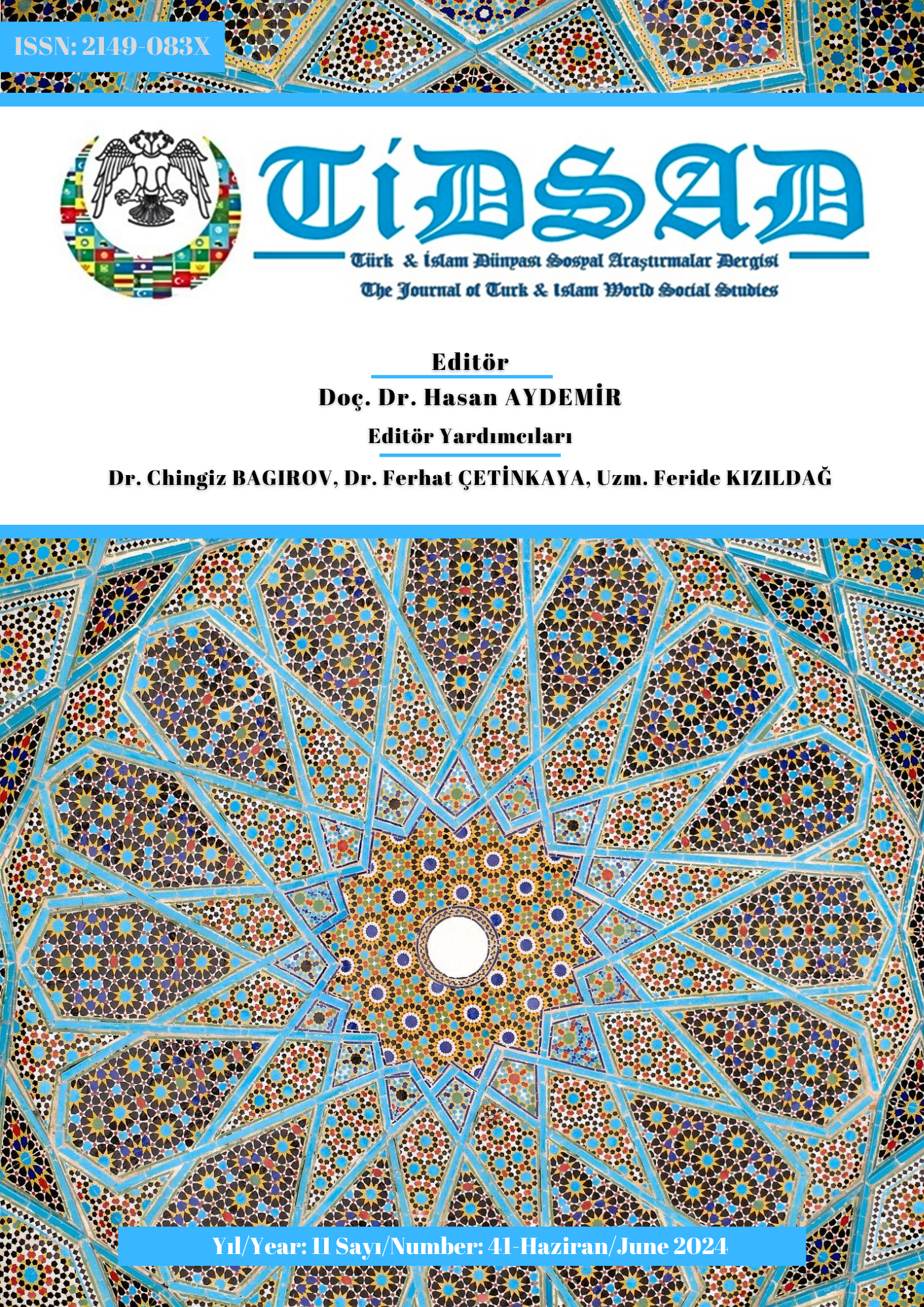Dede Sultan Selim ve Torun Sultan Selim’in Müzik Politikalarını Hangi Siyasetname Kitabı Etkilemiştir?
Author :
Abstract
Müzik politikaları, müzik tarihinin ve müzik sosyolojisinin Osmanlı İmparatorluğu özelinde araştırılması gereken konularından biridir. Günümüze kadar araştırılmayan konulardan biri olan Osmanlı Devleti'nin kuruluş yıllarındaki müzik politikasının belirlenmesi Ortadoğu ve Türk müziği tarihi açısından önem taşımaktadır. Gerçekçi ve sürdürülebilir bir müzik tarihi araştırması olarak planlanan bu araştırma, Osmanlı İmparatorluğu'nun kuruluş yılları olarak kabul edilen 15. ve 16. yüzyıllarda yaşamış aynı isimli iki Osmanlı padişahının müzik politikasına odaklanmaktadır. Bu padişahlardan ilki, fetihleri meşhur Yavuz Sultan Selim adıyla bilinen I. Selim (tuz. 1512-1520), ikincisi ise Sarı Selim adıyla da bilinen II. Selim (tuz. 1566-1574)'tur. Nitel araştırma yönteminin kullanıldığı makalede Yavuz Selim'in müzik siyasetinde belirleyici rol oynayan Osmanlı bilgini Hatipzade'ye ait Ravzu’l-ahyar adlı Arapça bir eserin olduğu tespit edilmiştir. Daha sonra Osmanlı tahtına çıkan II. Selim'in müzik politikasında belirleyici olan Aşık Paşa'nın 1566 yılında aynı eseri bazen eklemelerle, bazen özetleyerek Türkçeye çevirdiği tespit edilmiştir. Osmanlı Devleti'ni bu iki padişah arasında yöneten Kanuni Sultan Süleyman'ın, 1638'den itibaren müzik yasağı getirmesinin ardından yerine geçen oğlu II. Selim'in politikalarında etkili olup olmadığının sorgulanmasını zorunlu kıldı. Makalede Osmanlı’nın kuruluş yılları olan I.Selim’in müzik politikasının olumlu yaklaşımı dikkate aldığı Hatipzade’nin eserindeki müzik bölümünün tercümesi incelendi. Makalenin sonucunda Kanuni Sultan Süleyman'ın müzik politikasını müzik yasağıyla değiştirmesine rağmen II. Selim tarafından yeniden değiştirildiği ve müzik politikasında olumlu bir yaklaşım sergilendiği siyasi kitaplar aracılığıyla ortaya konmuştur.
Keywords
Abstract
Music policies are one of the issues that need to be researched in the history of music and sociology of music, specifically in the Ottoman Empire. Determining the music policy of the Ottoman Empire in its founding years, which is one of the subjects that has not been researched until now, is important for the history of Middle Eastern and Turkish music. This research, planned as a realistic and sustainable music history research, focuses on the music policy of the two Ottoman sultans with the same name, who lived in the 15th and 16th centuries, which are considered the founding years of the Ottoman Empire. The first of these sultans is Selim I (salt. 1512-1520), known as Yavuz Sultan Selim, whose conquests are famous, and the second is Selim II (salt. 1566-1574), also known as Sarı Selim. In the article where qualitative research method was used, it was determined that there was an Arabic work called Ravz al-ahyar by the Ottoman scholar Hatipzade, who had a decisive role in the musical politics of Selim I. It has been determined that Aşık Pasha, who was the determining factor in the musical policy of Selim II, who later ascended to the Ottoman throne, translated the same work into Turkish, sometimes with additions, sometimes by summarizing it, in 1566. It made it necessary to question whether Suleiman the Magnificent, who ruled the Ottoman Empire between these two sultans, was effective in the policies of his son Selim II, who succeeded him after he imposed a ban on music starting from 1638. xxx In the article, the translation of the music section in Hatipzade's work, which took into account the positive approach of the music policy of Selim I during the founding years of the Ottoman Empire, was examined. And as a result of the article, it is shown through the political books that even though Suleiman the Magnificent changed his music policy with a music ban, it was changed again by Selim II and a positive approach was displayed in music policy.





